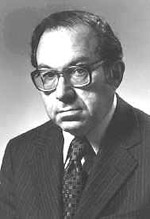A Quote by Marjane Satrapi
I wasn't made to take orders. My grandmother used to tell me: 'Laws are for idiots.' She was right.
Related Quotes
As the Nazi regime developed over the years, the whole structure of decision-making was changed. At first there were laws. Then there were decrees implementing laws. Then a law was made saying, ‘There shall be no laws.’ Then there were orders and directives that were written down, but still published in ministerial gazettes. Then there was government by announcement; orders appeared in newspapers. Then there were the quiet orders, the orders that were not published, that were within the bureaucracy, that were oral. And finally, there were no orders at all. Everybody knew what he had to do.
My mom's younger sister was born with Down syndrome. I was close to my grandmother when I was growing up. I remember talking to my grandmother about politics, and she told me that she regularly voted for the Democrats because she knew that they were going to look out for people like her daughter. That made an impression on me, too.
I was raised by my grandmother. She instilled everything into me. She taught me right from wrong from day one. I remembered everyday, being 4 or 5 years old, and walking to school, she would be like, Raise your right hand and stay on the right side of the street and make sure you do the right thing in school.
It was hard when my mother left us. I said to myself: 'You must keep working hard for her.' She was a teacher, a big influence. She made me work harder. So when I'm not doing something right or when I'm not playing or working hard enough, I remember what she used to say to me. She gets me moving. She pushed me to work hard.
My grandmother's grandparents were slaves. My grandmother Big Mama would tell me about the stories she heard as a child growing up in the shadows of a North Carolina plantation. It's only been in my lifetime that blacks have had the right to vote, live in certain areas or hold certain jobs. It is with this black history that I write about the financial challenges African-Americans still have.
To suppose arms in the hands of citizens, to be used at individual discretion, except in private self-defense, or by partial orders of towns, counties or districts of a state, is to demolish every constitution, and lay the laws prostrate, so that liberty can be enjoyed by no man; it is a dissolution of the government. The fundamental law of the militia is, that it be created, directed and commanded by the laws, and ever for the support of the laws.
I credit my grandmother for my sense of style. She was known for wearing bright, outrageous things because it made people happy and she thought it made her more approachable. When you wear a brightly colored shirt or pants, it shows you don't take yourself too seriously and it puts everyone around you at ease.
It's right around this time that her Grandmother Hall dies. And Eleanor Roosevelt is responsible for making all the funeral arrangements. And there are a couple of things that she really understands, as she contemplates her grandmother's life and makes the funeral arrangements. One, she's really talented, an organizational woman. She knows how to do things. She begins to compare her life to her grandmother's life. And it's very clear to her that being a devoted wife and a devoted mother is not enough.







































